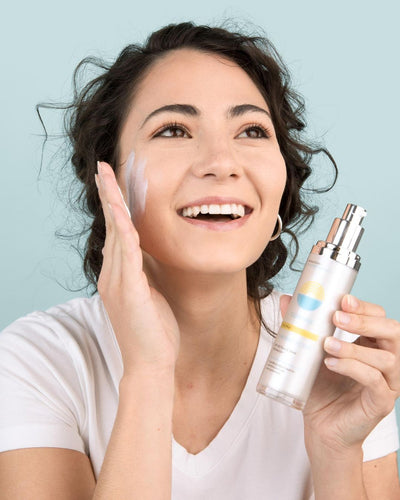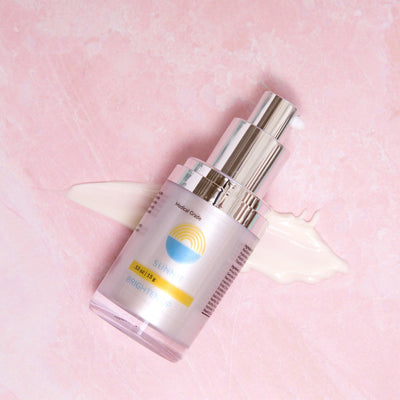Overview
Do you have sensitive skin? Are you suffering from acne, discoloration, or rosacea? Are you looking for anti-aging solutions? If you answered yes to any of the questions, this is the right place.
Medical grade skin care products have been clinically proven to deliver lasting solutions to the myriad of issues facing the most significant body organ, the skin. Continuous dermatological studies and the kind of conclusions in engineering medical-grade skincare routines mean those skin problems will soon be a thing of the past.
Most dispensing outlets do not sell stock medical-grade skincare products, even though it is always good to have a skincare routine. This applies regardless of whether you are seeking an eye cream, cleanser, or sunscreen with SPF protection from the sun's UV rays.
There is a gaping lack of adequate information on the medical-grade skincare routines. This is despite the way celebrities have praised them for delivering results. Read on because we have put together an article that will explain what a medical-grade skincare routine means, its benefits, quality, and safety.
What Does A 'Medical Grade Skincare Routine Mean?'
A medical-grade skin care routine means it involves products medically engineered to treat specific conditions of the skin. A dermatologist will prescribe it, and it both treats skin medically and offers positive cosmetic value.
Medical grade skin care routine treats, among others, the following conditions:
- Discoloration
- Acne
- Sun damage
- Rosacea
- Fine lines
Medical skin care is rich in active ingredients that make it delve deep beneath the skin's surface to attack the root cause of the problem.
Important Daily Habits For Your Skin
For healthy skin, incorporate these habits into your daily routine:
-
Drink Enough Water
Drinking lots of water is the most fundamental habit when it comes to skincare and overall physical health. Apart from quenching your thirst, water keeps skin hydrated, resulting in a more beautiful complexion.
-
Apply Sunscreen
Sunscreen is a product that shields your skin against the devastating effects of the sun's ultraviolet rays. Exposure to the UV rays of the sun affects the skin negatively. These rays destroy the skin's elastic tissue, causing wrinkles, stretching, and sagging. The recommended sunscreen is one with an SPF of at least 30.
-
Eat Healthily
There is a strong positive correlation between healthy eating and radiant skin. Your skin reflects what is going on in your body. Your skincare routine should thus include eating foods that are friendly to the skin. These include fruits and vegetables rich in vitamin C. Besides being an antioxidant, vitamin C also facilitates quick skin healing and smooth skin texture. Other skin-friendly nutrients are unsaturated fats, omega 3, zinc, selenium, vitamins A, E, and K.
-
Use Supplements
The skin is the largest organ in the body, so it has more minerals and vitamins. As much as it is right to eat healthy for healthy skin, it would not be possible to get all the ingredients needed by the skin from the food you eat alone. Supplements that are beneficial to the skin come in handy here. These include multivitamins, hydration agents, and antioxidants like resveratrol.
-
Cleansing
The fundamental principle is that the skin needs to be cleaned for appearance and health. The skin collects a lot during the day. Makeup carries free radicals from the environment. Failing to cleanse before bed means the skin remains with free radicals overnight. This destroys the skin collagen causing wrinkles and fine lines.
-
Get Quality Sleep
Getting enough sleep should be a critical part of your skincare routine. There is a strong link between healthy skin and quality sleep. Skin cells regenerate and repair while you are deeply asleep for long enough. So, take your rest and give skin a life.
-
Stress Management
There is a direct link between stress and skin aging. When stressed, the body gets into a coping mechanism that entails physiological responses. Too much exposure to such responses causes skin aging. Engage in stress management like exercising, listening to music, breathing exercises, aromatherapy, and so on, to manage the stresses of life.
-
Use Of A Moisturizer
The skin is the most exposed organ of the body, which predisposes it to moisture loss and dryness. Using a moisturizer replenishes the lost moisture and oils. This leaves the skin soft and youthful in appearance. A moisturizer with sunscreen will protect better.
-
Exercise
Exercise promotes youthful-looking skin. It increases blood flow, meaning the nutrients are well distributed to the cells making skin well nourished. This, combined with the detoxifying effect, results in a more vibrant complexion.
-
Use Skin Products With Natural Ingredients.
We all use skincare products. It is always good to ensure they contain natural components. These are not only safe but only curative and eco-friendly. Read the labels to avoid toxic ingredients.
Conclusion
The skincare habits above have been researched, tried, and tested. Why opt for painful dermatological surgery when you can follow these simple daily steps?
Best Ingredients For Your Skin
The common ingredients include; ferulic acid, glycolic acid tranexamic acid, vitamin C, and kojic acid. Vitamin E is also a significant ingredient in a medical-grade skin care product line.
Vitamin E and ferulic acid will be mostly combined with Vitamin C serums to increase effectiveness. If Vitamin C gets exposed to light, it loses its vigor and is deactivated. This explains why Vitamin C is packed in dark bottles.
Alpha hydroxy acid is common in medical-grade skincare. It increases absorption and potency and also improves exfoliation. Resveratrol is also an ingredient in medical-grade skincare brands. This enables our cells to produce more antioxidants. Resveratrol is also a phytoestrogen meaning it provides the body with estrogen, which aids in anti-aging.
Retinol, the percentage is higher in medical-grade skin care products than it is in over-the-counter beauty products. It's a great anti-aging ingredient used for acne, dark spots, and fine lines.
Lactic acid is also found in medical-grade skin care products. It's designed with a lower percentage for sensitive skin. It tones the skin, exfoliates it, and moisturizes the skin.
Types Of Skincare Routines
There are three different skincare routines:
- AM skincare routine
- PM skincare routine
- 10-minute skincare routine
AM Skincare Routine
This is the morning skincare routine:
-
Cleanser
First thing in the morning, splash warm water on your face or gently cleanse with a cleanser of your skin type. This is important as it removes excess dirt, pollutants, and oil from your skin and prepares the skin surface for the other ingredients.
Exfoliation is the removal of old and dead skin cells. Chemical exfoliants prevent the skin cells from holding while allowing the dead layer of skin to move more quickly as the new skin takes over.
-
Actives/ Serums
Serums work with your SPF to protect your skin from the UV rays of the sun and other environmental hazards it comes into contact with during the day. Serums, apart from being antioxidants, also contain anti-aging elements.
-
Moisturizers
Moisturizers hydrate dry and sensitive skin in hot weather. Medical grade skincare moisturizers are highly recommended for more oily skin. There are also lip moisturizers and eye creams for those delicate skins.
-
SPF
SPF denotes the Sun Protection Factor, which is the amount of time a sunscreen protects the skin from the harmful effects of the UV rays and free radicals. Do not do away with your sunscreen even in cold weather. An SPF of 30 and above is recommended.
PM Skincare Routine
This is the evening skincare routine:
-
Cleanse
Do not skip your cleanser in the evening. Your skin will have collected a lot of stuff from the environment by evening. You may need a double cleaner in the evening, especially if your skin is oily or you wear heavy makeup.
-
Serums/ Actives
These correct the damage caused by the sun in the day besides promoting the production of fibroblasts to regenerate collagen as we sleep.
-
Moisturizers
Moisturizers hydrate dry and sensitive skin. Like the AM skincare routine, do not discard your moisturizer at night.
-
Retinols
Retinols are anti-aging skincare agents highly recommended as you settle for the night.
10 Minute Skincare Routine
This is a step by step of how to get yourself looking fantastic in ten minutes:
-
Cleanse
It is a must to wash your face in the morning. This eliminates any sweat accumulated at night and leaves you fresh and ready for the day.
-
Tone
Toning refines the pores post-cleaning. It can also exfoliate and eradicate the leftover oils missed during cleansing.
-
Moisturize
Moisturizing hydrates and helps maintain the health of the skin while shielding it from the harsh conditions of the weather.
-
Prime
This is the canvas upon which makeup is applied. Priming also covers imperfections for those going makeup free.
-
Base
This foundation gives you coverage without the all-day feeling of heaviness.
-
Eyes
Applying mascara opens up the eyes. This gives the impression of being awake by making the eyes look more comprehensive and open.
-
Lips
Whether you prefer to go bold or keep it subtle, your look is incomplete without a touch of lipstick.
-
Set
Your makeup work is done. Set it using a setting spray or a setting powder to concretize it all. This has the effect of prolonging your makeup wear.
Tips For Building Healthy Professional Skincare Routine
Professional Advice
The first step in building a professional skincare routine starts with talking to your dermatologist. This is because there are many issues to deal with in this process, key of which is your skin type and the appropriate routine. This is best left to the professional. The dermatologist will determine your skin type and advise on the right products and frequency of application.
OTC vs. Medical Grade Skincare Products
Over-the-counter (OTC) skincare products are those that you can purchase from the local store without a prescription. Medical-grade skincare products are medically engineered to treat specific skin conditions. A dermatologist will prescribe it, and it both treats skin medically and offers positive cosmetic value.
You may need a hybrid of medical-grade and OTC products for effective skincare products. To ascertain what works best for you depends on the following factor;
- Skin type
- Allergies or preexisting conditions and
- Your special needs
As indicated above, a dermatologist will assist in determining what best works for, whether OTC or medical grade products or a combination of the two.
Skin Type
Finally, your skincare routine depends on your skin type. We delve deeper into the different skin types below:
-
Normal Skin: Clear And Not Sensitive To Products
People with this skin type can follow the regular daily routine for skincare. If the skin gets dry sometimes, a lotion-based moisturizer is recommended. A cream-based moisturizer is recommended for people entering menopause or aged 50 and above.
-
Dry Skin: Rough, Flaky, And It May Be Itchy.
Use the following daily skincare routine:
- Your cleanser should be gentle and fragrance-free
- Use enough cleaner to remove oil and dirt, don't create lots of lather
- Use lukewarm water to rinse the skin
- Gently pat dry the skin
- While the skin is still damp, apply a thick moisturizer. An ointment or cream-based moisturizer will do
Avoid products with Alcohol, Alpha hydroxy acid, and retinoids as this will worsen dryness or cause irritation. Hydrating your body helps your skin to be healthy.
-
Sensitive Skin: Burning Sensations, Irritation, And Stinging After The Use Of Some Products
Use fragrance-free products, including moisturizers and cleansers. Anyone with eczema or other allergies has sensitive skin.
A patch test is essential before using a new product. Apply the new development in the inner forearm for ten days, and if it doesn't cause swelling or inflammation, it may be safe for use. If any reaction occurs, wash the product off and don't use it.
-
Combination skins:
Some parts, like the cheeks, are dry, while others are oily. one may have an oily forehead, chin, and nose, commonly referred to as the T-zone.
You can apply a moisturizer only on the dry areas and avoid the oily areas. If the skin feels dry, always try hydrating and opt for a cream-based product, an ointment, or a light gel.
-
Oily Skin: Appears Greasy And Shiny, Always Prone To Acne.
Cleanse with a face wash that foams and is mild, don't over scrub the face. Products containing Benzoyl peroxide, azelaic acid, and topical retinoids will help prevent acne and keep the skin clear.
Conclusion
Medical grade skincare is now taking root in society. This can be majorly attributed to the fact that the products have been professionally vetted and clinically tested for quality. This means that the active ingredients effectively target the exact issue: acne, rosacea, sun damage, aging signs, or discoloration.
Over-the-counter products are not tested, do not penetrate the skin, and are not licensed to carry vast amounts of active ingredients compared to medical-grade skincare products.
If you are convinced that the way to go is medical-grade skincare, please consult your dermatologist for advice on a new medical-grade skincare routine incorporating medical-grade skincare products.




